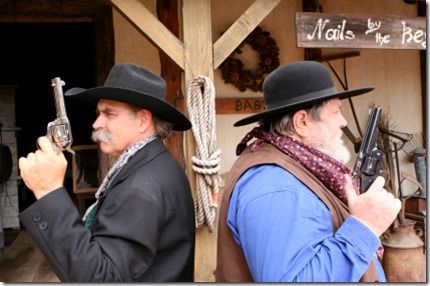One Of My Worst Moments As A Speaker
As a presentation trainer, audiences expect me to be a darn good public speaker.
So I’m guessing that one audience had high hopes for me a couple of years ago when I was invited to speak at an industry conference.
Everything was going well until an audience member challenged one of my points. Instead of taking my own good advice by answering his question and moving on, I began to debate him. The moment I did, I lost control of my own presentation. And in so doing, I elevated the audience member to the role of co-speaker.
My presentation was an advanced media training lecture, so I brought up one of the most challenging questions media spokespersons face: the “guarantee” question. I maintained that it’s okay to answer a “guarantee” question by using the word guarantee, but to guarantee only the process, not a result. Here’s an example:
Question: “More than $125,000 of the donations you received last year were used for expensive dinners and first-class travel, not for the programs you promised to apply them to. Can you guarantee your donors that not even a dime of their money will ever be misused again?”
Answer: “Here’s what I can guarantee: We will put into place every available safeguard to prevent this from ever happening again. For example, we’re hiring an expert in fraud prevention to oversee our accounting department, and we are investing in the most sophisticated fraud-detection software on the market. Our donors expect their money to be used wisely, and so do I.”
The audience member disagreed with that advice, insisting that the word “guarantee” was unnecessary and could set the spokesperson up for trouble (indeed, that may be true in some cases, but certainly not in all cases).
After I explained my position, I asked if I had answered his question sufficiently. He said he still disagreed. And that’s where I made my mistake, by continuing the conversation and turning it into an extended, minutes-long debate. As I made my case to that one audience member, I could feel the rest of the audience beginning to squirm. I had lost control.
What I should have done
When the audience member said he still disagreed, I should have retaken the floor by saying something along these lines:
(To the group) “This is a healthy discussion, and every PR practitioner in this room should consider for themselves which approach they’re most comfortable with before answering a “guarantee” question. For the reasons I’ve explained, I believe using the word “guarantee” is the best approach in many situations. (To the man) Thank you very much for raising your point. I’d be happy to continue the conversation with you following the session. (To the group) Okay, moving on…:
In the moment, I forgot a basic tenet of good public speaking: The “win” doesn’t come from winning an extended debate with a single audience member, but from respecting the needs of the entire audience. As a result, a few members of the audience probably left the speech wondering why I had allowed the session to escape my grasp.
Don’t miss a thing! Click here to instantly join our mailing list and receive free media training and public speaking tips 2-3 times each month.





One of the things that I think makes you good at what you do, Brad, is pointing out the mistakes you yourself have made over the years. Thanks for sharing this one–a good lesson learned for all of us!
Art,
Thank you very much for that; I really appreciate that compliment!
I try to do for my own presentations what I do for everyone else’s — look critically but without judgment at what worked and what didn’t. I try never to make my personal critiques a larger referendum on myself (e.g. “I’m not good enough.”) but rather focus on the things I can do better (e.g. “I know that part didn’t work. How can I make that work better next time?”).
Honestly, it took me many years to be able to do that. I used to judge myself harshly, which just doesn’t help. I encourage everyone else to try to be equally kind to themselves while being honest about their areas for improvement!
Thanks for reading and commenting, Art.
Brad
Good stuff. We’ve all been there, even we “experts.” As you point out, this is a process. As a Ph.D. In Speech Communication (1978, so who know what IU calls it now), I used to share research based principles. Of course, the engineers and finance guys wanted “guarantees,” I’d tell them this: “Based on what we know, all I can tell you is if you follow this advice, it increases the probability of success. If anybody tells you something more conclusive than this, bueno suerte.”
Not trying to hide identity. Sorry for the typo in the prior post in name.
I see this often in politics with folks intended to hijack the conversation. I’m not an expert however I tell my staff to tell those folks to discuss after the presentation since the audience showed up to hear the speaker, not the hijacker.
I agree with your advise, Brad, except that I would not invite the questioner to continue the debate after the presentation. Doing so makes it sound like you really haven’t satisfactorily answered his question or that you aren’t sure the answer you gave him is correct or complete. Alternatively, it may sound like you are offering to finish him off after the talk. Of course, do talk to the guy after the presentation, if he still wants to discuss (or “debate”) the issue.
I see many top speakers (including politicians) get hijacked by people who want to argue a point (whether they are doing so maliciously or not). I am always amazed that they made it to where they are and they don’t know how to handle a question.
Hi Pat,
You raise a very interesting point. I suppose the words in that moment may be less important than the tone. If the invitation to continue the conversation sounds genuine (and not at all like an invitation to a debate), I believe it can work. But if anything about the person’s tone sounds combative, I agree with you completely – that speaker is sunk.
I’m going to give your comment a bit more thought!
Thank you,
Brad